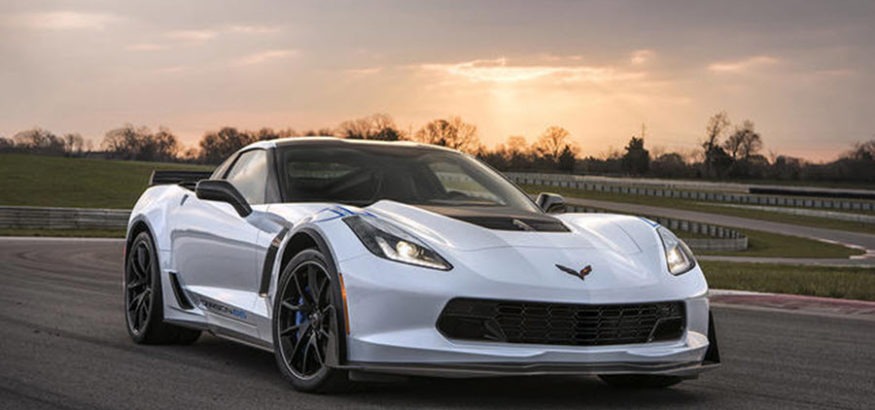Car Loans – Improve Approval And Save More
Financing your dream car
Purchasing a car is one of the biggest purchases you’ll make outside of buying a home. Empower yourself to make good decisions in the face of excitement and temptation.
- What can you really afford?
- How to choose a car loan
- Get the most bang for your buck
- Choosing car insurance
What can you really afford?
Determining the amount you can commit to for your car loan doesn’t stop with the price of the car, taxes, and interest. It also includes the ongoing costs associated with owning the car. Consider your registration fees, insurance, roadside assistance, fuel, repairs, maintenance, and road tolls- if you’re a commuter.
Once you’ve set out the parameters of your budget, including the additional costs of owning a car, stick to it. You may find a dealership offering lovely incentives, accessories, or extra warranty protection. However, it’s important to look into the true value of these incentives and ask yourself if it’s simply adding to your debt with only marginal benefits at best.
Consider purchasing a previously owned vehicle. You can save money and have more wiggle room for things like your insurance premiums. Before you buy, check the ownership of the car by referring to CARFAX and make sure its VIN number is clean and available, while also assessing any previous damage from accidents.
Choosing a Car Loan
A car loan is a personal secured loan that is designated for the sole purpose of purchasing a new or used vehicle.
You’ll borrow a sum of money with the expectation of repayment within an agreed upon term. You’ll sign a contract that specifies the amount you’re financing, the interest rates, and the term in which you will repay it.
Terms can vary from 12 months to 72 months, or 1 to 6 years.
Fixed and Variable Rate Loans
You have two options when shopping around for car loans: fixed rate and variable rate loans. With a fixed rate loan, you have an interest rate that is locked in for the life of the loan. Your repayment amounts will be set and never change at any point during the loan’s term. Keep in mind, you do have the option to pay more on the loan and pay it off early, but be sure to ask if there is an early payoff penalty.
Secured Loan
Secured loans involve offering up an asset, like the car you’re buying, as security for the loan.
If you fail to make repayments, the creditor can repossess and sell your asset in an attempt to recoup any of the money lost on your loan. The age of your car will affect its resale value. If your car is repossessed and sold for less than the amount owed on the loan, you will still have to pay the creditor the difference.
Unsecured Loan
Unsecured loans are typically taken out for used cars. You don’t have to offer an asset as security, however you may not be able to borrow as much, or you may have higher interest rates. Technically, because there are no assets backing the loan, the creditor views an unsecured loan as a bigger risk, and will attempt to mitigate that risk through higher interest rates. If you don’t repay the loan, your assets remain yours, but the creditor will be able to take you to court to recover any money lost.
Peer to Peer Loan
You might be able to get a car loan without having to finance traditionally. You could draw up an informal agreement with a peer who lends you money to make an outright purchase of a vehicle.
Get Value for Your Money
Equally as important to getting the best price on a car, is getting the best credit deal. Make sure you shop around for credit with different lenders, so you can find a loan best suited to your needs and budget.
Many creditors will provide a “pre-approval” for a loan, so you can figure out how much you can borrow and won’t be tempted to spend outside your margins.
Dealer Finance
If you by from a dealership, they’ll often offer to finance your vehicle on site. While convenient, it may not be the best available credit deal. Be sure to shop around to make sure you get a good deal on your loan. Banks and credit unions all offer auto loans, so check out what’s available and compare to make the best decision for you.
Car Leases
A car lease allows you to rent a car for an agreed upon period of time. But you don’t have the right to buy the car until the end of the term. You can make an offer for the car, but typically, it’ll require you to deposit a large sum of money to make up for the value of the car to the creditor. In other words, a creditor may allow you to buy the car, but over the term of the lease, you may not have contributed enough to the purchase to meet the value the creditor determines for the vehicle.
Car Insurance
You must take out an insurance policy on your car before driving it off the lot. If you borrow money and finance the vehicle, you’ll be required to carry comprehensive insurance on the car, not liability only.
Extra Warranties Offered by Dealerships
If you are financing your vehicle, you may also be offered extended warranties for your car, such as loan protection, gap insurance, or tire and rim insurance. Be sure to carefully consider these offers before committing to them. They may not be the best value for your money, and they ultimately add to the cost of your loan.
Buying a car is an important financial decision. Research your options before shopping, including the loans and car insurance.

